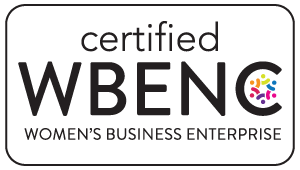Importance of DEI in Healthcare Recruiting
Diversity, equity and inclusion (DEI) are vital in healthcare recruiting. Patient care and outcomes will improve by creating a staff that reflects the population it serves. Placing importance on DEI in healthcare recruiting can also help providers retain current employees and attract top talent who value a diverse workforce. A 2021 poll shows that nearly 80 percent of employees want to work for a company that values DEI.
What is DEI?
Diversity, equity and inclusion practices in the workplace are designed to acknowledge the differences in employees and create a culture that makes everyone feel valued and supported.
In healthcare, DEI in the workforce ensures you have a staff that represents the patients you serve, that your employees have equal opportunities for advancement, and that your facility welcomes different perspectives, beliefs and ideas.
- Diversity is the recognition of differences in race, ethnicity, gender, identities, sexual orientation, age, religion and socioeconomic background. It can also include veteran status and physical abilities.
- Equity means that fair processes and procedures are in place within an organization to reduce disparities and give everyone an equal advantage.
- Inclusion is welcoming a diverse workforce and ensuring employees feel a sense of belonging in the organization.
Combining these three elements ensures that employee well-being is a priority and recognizes that how employees feel can affect how they work. The practice also assures every employee the same opportunities for advancement, regardless of their background.
Benefits of DEI in healthcare
Following DEI practices in recruitment can help medical facilities in multiple ways, from patient care to staff satisfaction to the general success of a healthcare organization. Overall, it showcases a facility’s commitment to giving its staff a place to thrive professionally without barriers. Here’s why:
1. You can attract top talent.
DEI initiatives set the stage for an inclusive culture that embraces differences, and it is becoming more important to healthcare staff looking for employment. Potential hires will see your DEI policies as a benefit when considering where to work.
2. You will have a larger candidate pool.
Casting a wider net and reaching out to areas that may have been overlooked can increase your pool of qualified candidates to hire.
3. Staff will have diverse skill sets.
The new perspectives of a diverse staff can help with better decision-making and improved processes and procedures that encompass the needs of all staff and drive innovation within your organization.
4. DEI improves patient care.
Patients who see themselves in the people caring for them feel more comfortable receiving medical care. Bilingual staff members can help you communicate better with patients who do not speak English.
5. Your organization will be more successful.
DEI efforts can create an environment that improves worker morale and increases retention, reducing hiring and onboarding costs.
How to improve DEI in medical provider recruiting
Healthcare facilities may find it challenging to improve DEI in their hiring practices because they do not know where to start. It is still a new practice, but one that the healthcare industry should embrace because it affects patient care and overall health outcomes.
At TinkBird, we offer comprehensive healthcare recruiting for permanent medical placements. We actively recruit doctors, physician assistants and nurses for placement in hospitals, health systems, private medical practices and community health centers across the U.S.
Using DEI in recruiting and hiring staff means creating a process free from bias that gives all potential applicants an equal opportunity. Here are some actionable steps to take to shift behaviors when it comes to recruitment and hiring practices.
Review your job descriptions
Update your job descriptions so they speak to a broader range of candidates. For instance, many recruiters have included language that they are looking for candidates from underrepresented or marginalized groups.
Broaden your reach
Reach out to colleges or schools that may have clubs dedicated to underrepresented groups within the healthcare field. If you are working with a recruitment firm, note that you want to diversify your staff.
Encourage employee referrals
Your staff may have a network of people with similar backgrounds who work in the medical field that you can tap into for referrals. Some companies have a program that offers incentives for successful employee referrals.
Showcase your actions
Showcase your commitment to DEI hiring practices in your company materials and on your company careers page. Talk to current employees about what they think is important in diversity, equity and inclusion and highlight those aspects of working for your organization.
Update company policy
Talk with stakeholders about what you are doing and how you want to improve. Include language in your company policies and employee handbooks that shows your commitment to DEI.
DEI for temporary medical employees
If you are looking for short-term or long-term locum tenens positions or travel nurses, your DEI policies still matter. In fact, they may be more important for temporary staff who want to acclimate to a team quickly so they can do their job successfully.
A temporary staff member who works for an organization that values diversity and inclusion will know they are going into an environment where they can contribute their ideas.
Apply the strategies mentioned above for your full-time employees as well as your temporary staff.
TinkBird staffing solutions
We can help improve your staff’s diversity by recruiting employees who bring valuable experiences and diverse beliefs to their jobs. We want to talk to you about our solutions for creating a recruiting plan focused on diversity to help you find qualified candidates from all backgrounds. Contact TinkBird today to get started!









